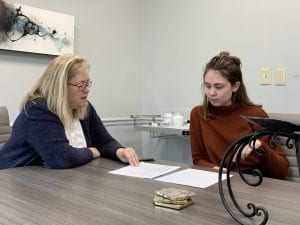A client recently sent me an email to let me know that her son was accepted into the Honors Program at UGA (yay!) and had turned 18. My client wrote asking “Do I have the ability to make medical and other decisions on his behalf given that he is now an adult?”
The short answer is “No, not without some basic estate planning.”
I remember going to college orientation as a parent and being told that our children (now young adults) had no obligation to share their grades or health records with us, and that the school would not release those records to us without our child’s permission. Even if we were paying for college! “And don’t ask your child for permission to contact the school directly,” they sternly advised. “Let your young adult have some privacy and control over their own lives.”
But what about the checks we just wrote for tuition and room and board?! “Hopefully your relationship with your child is such that they will share these things with you voluntarily.”
Under the law, if your adult child is able to make and communicate his or her own healthcare decisions, a parent no longer has a decision-making role. If your adult child is not able to make or communicate decisions (because he or she is unconscious, for example) doctors will look to the parents to make decisions, and as long as the parents agree and are making reasonable medical choices, the treatment team will allow for this informal decision-making process. (Note: this assumes your young adult child is not married.)
However, if parents disagree, doctors and hospitals will want a court to appoint a guardian for the adult child, unless the child-patient has executed an Advance Directive for Health Care which names an agent (proxy) to make those decisions. I recommend that everyone over 18 execute these forms so it is clear who should make these decisions. Our new attorney, Deanie, recently helped my young adult step-daughter, Alex, execute her healthcare directive.
If your young adult child has assets titled in his or her name, they may also need a Power of Attorney so that a parent can access those assets if the young adult owner is incapacitated, and a Last Will and Testament to specify how those assets will be distributed upon his or her death. For example, we have access to our daughter’s bank account through the bank but we could not sell her car without a Power of Attorney or Will.
Although young adulthood may seem like a strange and uncomfortable time to plan for an incapacity and death that is likely decades and decades away, there is another good reason to introduce your young adult children to your lawyer: when your children are faced with your incapacity or death, they will know who to call for help and they will have some foundation of a relationship.
Contact our office if you want to bring your young adult in for a meeting to execute a healthcare directive and power of attorney before school starts in the fall.
